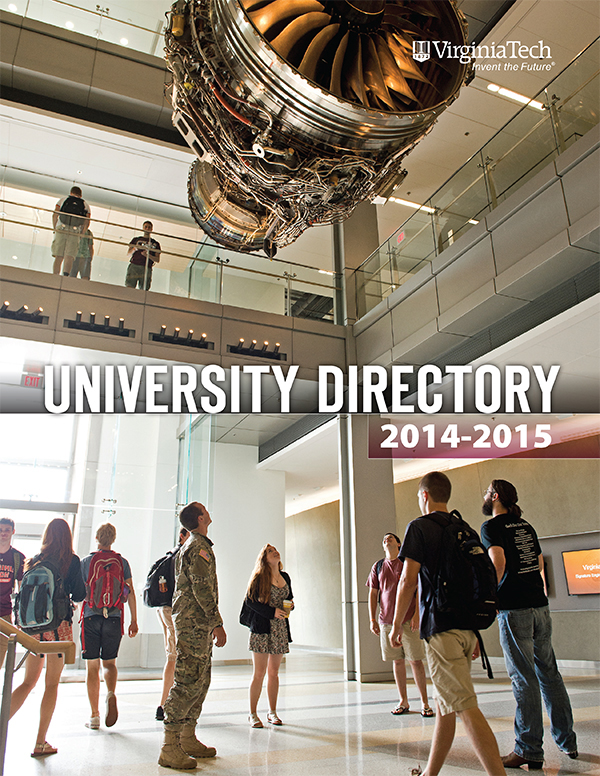2015-16 University Directory goes digital to reduce environmental footprint and expenses

In the final step of a four-year process, Virginia Tech's University Relations will make available the 2015-16 University Directory in a digital-only format.
Over the years, demand for a printed directory has decreased substantially, while efforts to reduce the impact of paper, printing, and distribution materials on our campus environment have greatly increased. Last year, the print quantity was reduced to only 500 copies — provided to administrative/academic departments and by special request — down from a high of some 18,000 copies, saving millions of sheets of paper and hundreds of pounds of cardboard shipping boxes.
This year, the truncated version, which like last year's directory does not include student listings or advertising, will be available online in early October as a printable PDF. Users can reference the online version or download and print the directory from their desktop. If a printed and bound copy is desired, Printing Services can provide a spiral-bound version on white bond paper at a nominal charge.
In preparation for the 2015-16 University Directory, all departments and organizations are asked to update their entries in the online database by Friday, Aug. 21. Specific instructions on the updating process, along with contact information for Printing Services, will be provided via a forthcoming email from University Relations' marketing and creative services unit.
For assistance or more information, email Paula Stith or call 231-6333.
Dedicated to its motto, Ut Prosim (That I May Serve), Virginia Tech takes a hands-on, engaging approach to education, preparing scholars to be leaders in their fields and communities. As the commonwealth’s most comprehensive university and its leading research institution, Virginia Tech offers 240 undergraduate and graduate degree programs to more than 31,000 students and manages a research portfolio of $513 million. The university fulfills its land-grant mission of transforming knowledge to practice through technological leadership and by fueling economic growth and job creation locally, regionally, and across Virginia.




